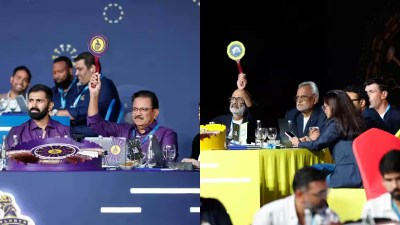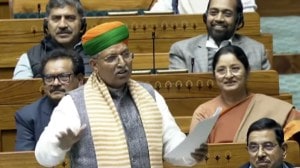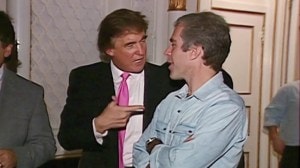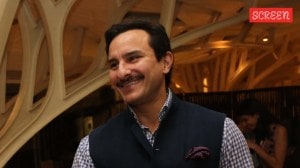The High Court ruled that the trial of Saibaba and five others were “null and void” in the absence of a valid sanction under the Unlawful Activities (Prevention) Act (UAPA), 1967.

In 2013, police in Gadchiroli claimed to have received secret information about active members of the CPI (Maoist) and its front, the Revolutionary Democratic Front. Police arrested Mahesh Tirki, Pandu Narote, Hem Mishra, Vijay Tirki, and journalist Prashant Rahi that year. On May 9, 2014, Saibaba was arrested.
All six accused were charged with criminal conspiracy to wage war against the Government of India through unlawful activities by use of violence. The accused, including Saibaba, were alleged to have been found in possession of documents and electronic gadgets containing Maoist literature, letters, correspondence, pamphlets, and audio-video clips of meetings of the CPI (Maoist).
On March 7, 2017, the Gadchiroli sessions court pronounced the accused guilty of charges including unlawful activities, conspiracy, membership and support of terrorist gang under the UAPA, and criminal conspiracy under the Indian Penal Code. Five of the accused, including Saibaba, were sentenced to life in prison, the maximum punishment under these sections. Vijay Tirki was sentenced to 10 years. Twenty-three witnesses were examined, and heavy reliance was placed on the seizures made from the accused.
Sanction to prosecute under UAPA
Section 45(1) of the UAPA says no court shall take cognizance of any offence under the Act without the previous sanction of the central or state government or any officer authorised by them.
Story continues below this ad
Under Section 45(2), the sanction for prosecution has to be given within a prescribed time only after considering the report by the competent authority. The authority is expected to make an independent review of the evidence gathered by the investigation agency before making a recommendation to the government for the sanction.
In this case, the investigators sent the evidence to the Directorate of Prosecution for an independent review. The Directorate through its director recommended that there was a prima facie case against the accused, and hence sanction could be accorded. Based on this, the additional chief secretaries of the Home Department of Maharashtra granted sanction.
The first sanction was received on February 15, 2014 against the five accused arrested in 2013. The second sanction, to prosecute Saibaba, was received on April 6, 2015.
What the High Court said on sanction
Story continues below this ad
In their 101-page judgment, the Division Bench of Justices Rohit Deo and Anil Pansare refrained from dealing with the merits of the case, and instead considered the point of invalidity and absence of sanction under UAPA. The court dealt with the legislative intent of the makers of the law in inserting the requirement of a sanction to prosecute accused under UAPA.
The court noted that UAPA did not originally cover terrorist activities. Other laws, including the Terrorist and Disruptive Activities (Prevention) Act (TADA), 1987, and the Prevention of Terrorism Act (POTA), 2002, dealt with terrorism until they were repealed or allowed to lapse. Both these laws were criticised for being draconian, and the central government was sensitive to criticism. The UAPA has been amended from time to time to cover various facets of terrorism while also responding to concerns about its misuse.
The 2008 amendment to Section 45 of the UAPA specified that sanction to prosecute would be given “only” after considering the independent review of an authority appointed by the government. This ensured an “additional safeguard or filter”, the High Court said. The legislative intent was to ensure that the sanctioning authority is aided, assisted, and guided by the independent review of the evidence gathered in the course of investigation, it said.
The court also referred to then Home Minister P Chidambaram’s statement in Lok Sabha when the amendment Bill was moved in 2008. Chidambaram said that while the executive arm investigates, the evidence must be reviewed by an independent authority with a “legally trained mind”, which would act as a “clean sanction filter” for any case where the evidence did not warrant prosecution. The law was being strengthened, but safeguards too were being provided, Chidambaram had argued.
Story continues below this ad
According sanction is not a “ritualistic formality”, the court said. “Sanction serves the salutary object of providing safeguard to the accused from unwarranted prosecution and the agony and trauma of trial, and in the context of the stringent provisions of the UAPA, is an integral facet of due process of law.” The report by the Directorate “was nothing more than a communication conveying the conclusion in the form of a recommendation”, and stood on the same footing as the absence of a report, it said.
The order noted that the sessions court had taken cognizance of the offence, framed charges, and examined the first witness even before the sanction in Saibaba’s case. The court rejected the prosecution’s argument that the invalidity or absence of a sanction was a “curable” defect that should not lead to an acquittal or discharge — every legislatively provided safeguard, however minuscule, must be “zealously protected”, it said.








































